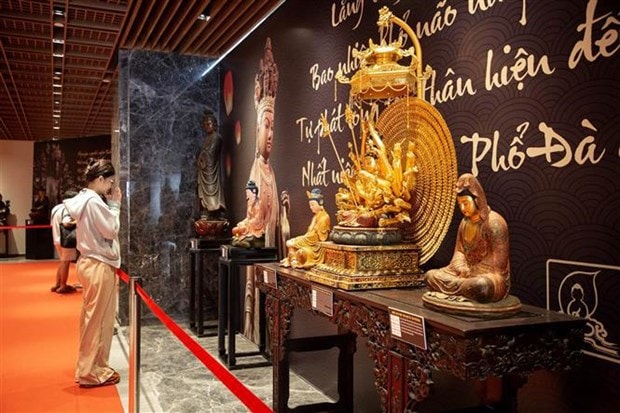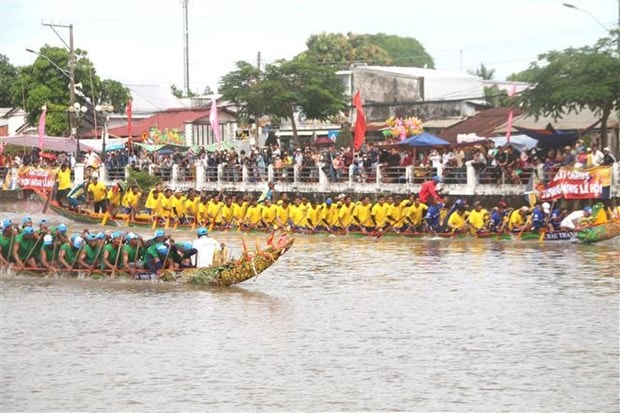The right to freedom of belief and religion in Vietnam is guaranteed in line with Article 24 of the 2013 Constitution.

The diversity of religious activities, including festivals, clearly demonstrates that the right to freedom of belief and religion in Vietnam is guaranteed in line with Article 24 of the 2013 Constitution which stipulates that everyone shall enjoy freedom of belief and religion, and can follow any religion or follow none; and the State respects and protects the freedom of belief and of religion, according to insiders.
Statistics from the grassroots culture department under the Ministry of Culture, Sports and Tourism showed that there are 7,966 festivals held in Vietnam every year, including 544 religious ones. Religious festivals are held with strictrituals and ceremonies in accordance with religions’ regulations.
Each religion has its own beliefs and system of doctrines, canons, and rituals, which are characteristics to distinguish this religion from the others. However, in Vietnam, although beliefs and religions have different origins and principles of practice, there is no severe conflict. On the contrary, these religions interact with each other and connect with surrounding communities, which is a unique feature of beliefs in the Southeast Asian country.
It can be said that religious festivals in Vietnam, in addition to possessing sacredness like everywhere else, also have their own strong sense of community.
Important festivals of religions are held on an increasingly large scale, attracting the participation of a large number of followers and people, and receiving respectful congratulations from leaders of the Party, the State, the Vietnam Fatherland Front and the support to ensure social order and safety from local authorities.

Big religious festivals include Vesak Day marking the birth anniversary of the Buddha, Christmas, La Vang Pilgrimage Festival, Kate Festival of Cham Brahman followers, and Cao Dai region’s grand ritual dedicated to the Duc Chi Ton (Supreme Being) or Great Father who they believe to be the ancestor of the world.
According to a survey by the US-based Pew Research Centre, Vietnam is among the 12 countries in the world and six in the Asia-Pacific region with very high levels of religious diversity.
The Government's Committee for Religious Affairs said that the country currently has 26.5 million religious followers, accounting for 27% of the population. Of the total, Buddhism has more than 14 million followers and 18,544 places of worship, and Catholicism has over 7 million followers and 7,771 places of worship.
In the 2003-2022 period, the number of dignitaries, sub-dignitaries, and worship facilities has increased significantly. In 2003, Vietnam recognised six religions with 15 organisations, 17 million followers, about 20,000 places of worship, 34,000 dignitaries, and78,000 sub-dignitaries. By 2022, it recognised 16 religions with 43 organisations, 26.5 million followers, more than 53,000 dignitaries, about 135,000 sub-dignitaries, and over 29,000 places of worship.
It is worth noting that among the 16 recognised religions, there are nine imported into Vietnam from foreign countries in different historical periods such as Buddhism, Catholicism,Protestantism and Brahman.
The State ensures and creates conditions for religious organisations to establish religious training facilities and open training classes. The country currently has 62 religious training establishments in 36 provinces and cities.
TB (according to VNA)